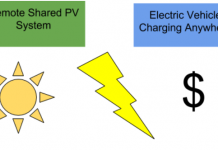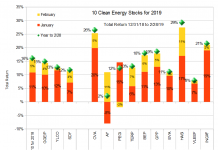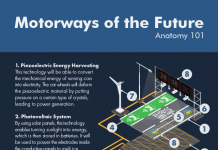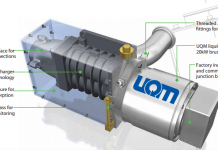Tom Konrad CFA
Tesla Motors (TSLA) is not the only electric vehicle (EV) stock. Here are nine other public companies helping to replace petroleum with electricity in our cars and trucks.
Early in this series on the Best Peak Oil Investments, I put together an in-depth comparison of alternative fuels. I concluded that the best prospect for displacing oil in the long term is electricity supplemented by biofuels. Vehicle Electrification is likely to come to dominate the transportation sector because only renewable electricity can supply energy on the scale that we currently use for transportation with limited use of land area. Biofuels require far more land area to propel a vehicle the same distance.
Many investors see the long term promise of Electric Vehicles (EVs) and think it means that the first EV stock to go public on a North American exchange, Tesla Motors, Inc. (TSLA), will inevitably take off. Similar thinking lead to the strong investor response to the A123 (AONE) IPO last year. Such investors should remind themselves that just because an industry has great long term prospects does not mean that the early IPOs are great investments. Solar energy also has great long term prospects, but investors who bought Sunpower (SPWRA) in the month after its IPO in 2006 for $26 to $32 would now only have half their initial investment after four years. Earlier solar IPOs were even worse. Does anyone remember Astropower? The company declared bankruptcy in 2004. I can’t find the date that it went public, but I remember that it was public in 1999 when I attended an investor presentation by the company President Dr. Barnett. I bought and sold a small position in the stock shortly after for a nice profit, holding it less than a month. I believe the people who make the most money on Tesla will also be the traders, not the long term investors, at least in the next few years.
A great technology does not guarantee a great stock, and buying the high-profile leader in a hot sector does not make an investor’s prospects any better. So if you still want to invest in vehicle electrification, here are nine other companies to consider. Most are dogs, but one or two will almost certainly do better than Tesla, and the fact that these stocks are getting so much less investor attention means that you have a much better chance finding a diamond in the rough.
The Dogs
Li-ion Motors (LMCO.OB) develops and markets lithium-ion powered vehicles, from electric bicycles, scooters, and mopeds, to cars. It’s unclear if they have much proprietary technology. Financially, the company is on shaky ground, with an annual loss of about $2M and net current assets of only $570,000 in the most recent quarter, the majority of which is “advances to related parties.” The cash flow statement is dominated by advances and payments from related parties, which raises questions in my mind about financial transparency and controls. However, even without that, Li-ion Motors appears to need to continually raise substantial cash in order to continue operations. Opinion: Avoid.
Raser Technologies (RZ) Raser Technologies is primarily a geothermal power development firm with a hybrid vehicle arm. The hybrid vehicle division has developed a drive train technology for larger extended range electric vehicles such as SUVs and light trucks. Raser is currently experiencing a severe cash flow problem requiring it to sell assets to repay debt. Opinion: Avoid
ZAP (ZAAP.OB) Zap has been around for quite a while, and has earned a reputation for over-promising and under-delivering its neighborhood electric vehicles. They recently acquired a large stake in a Chinese automaker and intend to ramp up production. Given the company’s continuing losses and weak balance sheet, they will have to continue to raise new equity and convertible debt, most likely diluting current shareholders. Opinion: Avoid.
Speculative Bets
ZENN Motor Company (ZNNMF.PK) ZENN Motor Company develops electric vehicle technologies and solutions that will incorporate EEStor’s solid state electrical energy storage units. The Company markets its products primarily to original equipment manufacturers. ZENN has a large stake in the secretive Austin, TX based EEStor. If EEStor succeeds in commercializing its novel energy storage devices at reasonable cost, they will be transformational for the electric vehicle industry because of their promised high energy density, quick charge time, and light weight. Zenn shareholders will stand to profit handsomely. If not, ZENN is likely to continue to bleed cash rapidly, and will probably need to raise more money before the end of 2010, to the detriment of current shareholders. Opinion: Avoid.
Balqon Corporation (BLQN.OB) is a developer and manufacturer of zero emission heavy-duty electric trucks and tractors for both off-highway and on-highway applications. I think that the short-haul electric trucks and heavy equipment that Balqon focuses on have much better short term prospects than electric cars because such trucks are typically fleet vehicles and have predictable driving patterns. The high up-front costs, low operating costs, and limited range of EVs mean that constant-length routes, heavy usage, and a fixed home base all greatly improve the economics. The industrial and large commercial owners of such trucks are also likely to already have the heavy-duty electric grid connections needed for rapid charging of such vehicles. Like most of the other companies listed here, Balqon is also not profitable, and will need to raise money on a fairly regular basis before they reach profitability, and which they have been doing through the sale of convertible debt and warrants. Because of the continued fund raising, I would avoid the common stock, but expert accredited investors might find it worth their while to investigate the terms of the next convertible offering. Note that I have not investigated the terms, and am not advising on any such investment. I just think it might be worth looking into for expert investors. Opinion: Worth watching.
UQM Technologies (UQM) designs and manufactures electric motors and controllers for EVs and HEVs. They have experience with electrifying everything from bikes to military vehicles to buses, cars, and trucks. UQM has a collaboration with first tier auto parts manufacturer BorgWarner (BWA) to develop electric powertrain components, and last year signed an agreement w
ith Coda Automotive (a private Califronia based EV maker) to supply electric proplusion systems for ten years. They have also received one of the ARRA manufacturing grants. Although UQM is not profitable and has negative cash flow, they have several years’ worth of cash on the balance sheet, and so may be able to reach profitability without further fund raising, although they will most likely continue raising money to fuel expansion to meet their rapid growth in orders. Opinion: Worth watching.
The Profitable Companies
NEO Material Technologies (NEM.TO) is a producer, processor and developer of neodymium-iron-boron magnetic powders, rare earths and zirconium-based engineering materials and applications, and other high value niche metals and their compounds through its Magnequench and Performance Materials business divisions. NEO’s products are useful in miniaturization, emissions control, and the efficient, lightweight motors needed for electric vehicles. Although most of the company’s revenues come from products other than electric motors, a rapid expansion of the EV industry should increase demand for the company’s products. Unlike most of the other EV stocks listed here, NEO is a global company operating in ten countries with a record of positive cash flow and earnings, and no net debt. With trailing 12 month earnings of C$0.31, the stock is a reasonable value at the July 13 closing price of C$3.62. Opinion: Worth watching.
CPS Technologies Corp. (CPSH.OB) develops and manufacturers components using advanced materials, especially combinations of metals and ceramics. While only a small portion of their business currently comes from hybrid and electric vehicles, they are profitable, have a strong balance sheet and cash flow, and no net debt. Other alternative energy applications for the company’s products include mass transit and wind turbines. Earnings have been only $0.05 per share for the last year, but the company is experiencing rapid growth, with sales doubling between 2008 and 2009. If this growth were to continue for the next few years, the company should be worth its recent $1.60 share price, but I don’t know the company well enough to come up with my own projection. Opinion: Worth researching further.
BYD Company, Ltd. (BYDDY.PK) is a Hong-Kong Chinese battery manufacturer which launched a electric vehicle division in 2003. They are already selling electric cars and buses in China, and expect to have models meeting Western safety standards for sale in 2011. The BYD gasoline-powered F3 sold 24,000 units in China in the first five months of 2010. If any company is going to mass produce an affordable, mass market electric car at high volumes in the next couple of years, I think it’s a lot more likely to be BYD than Tesla. BYD’s battery business is profitable, with total company 2009 earnings about $0.26 a share. Warren Buffett’s MidAmerican holdings took a 10% stake in BYD for $232 million in 2009, which would value the company at $2.3 Billion, or about $1 per share. Buffett’s investment helped the company by lending credibility and raising investor interest, but at current prices I would not expect new investors to make money. Opinion: Worth further research if the stock falls below $3.
Conclusion
I’ve not looked at any of these companies closely enough to make a buy decision, although it was easy to rule out several. Of the ones that are left, I think Neo Material Technologies, CPS Technologies Corp, and UQM Technologies are the most likely to be good values at current prices. I’d buy any of these three before I’d buy Tesla.
This article is part 18 of my Best Peak Oil Investments Series, the index of which is here.
DISCLOSURE: No Positions.
DISCLAIMER: The information and trades provided here are for informational purposes only and are not a solicitation to buy or sell any of these securities. Investing involves substantial risk and you should evaluate your own risk levels before you make any investment. Past results are not an indication of future performance. Please take the time to read the full disclaimer here.








